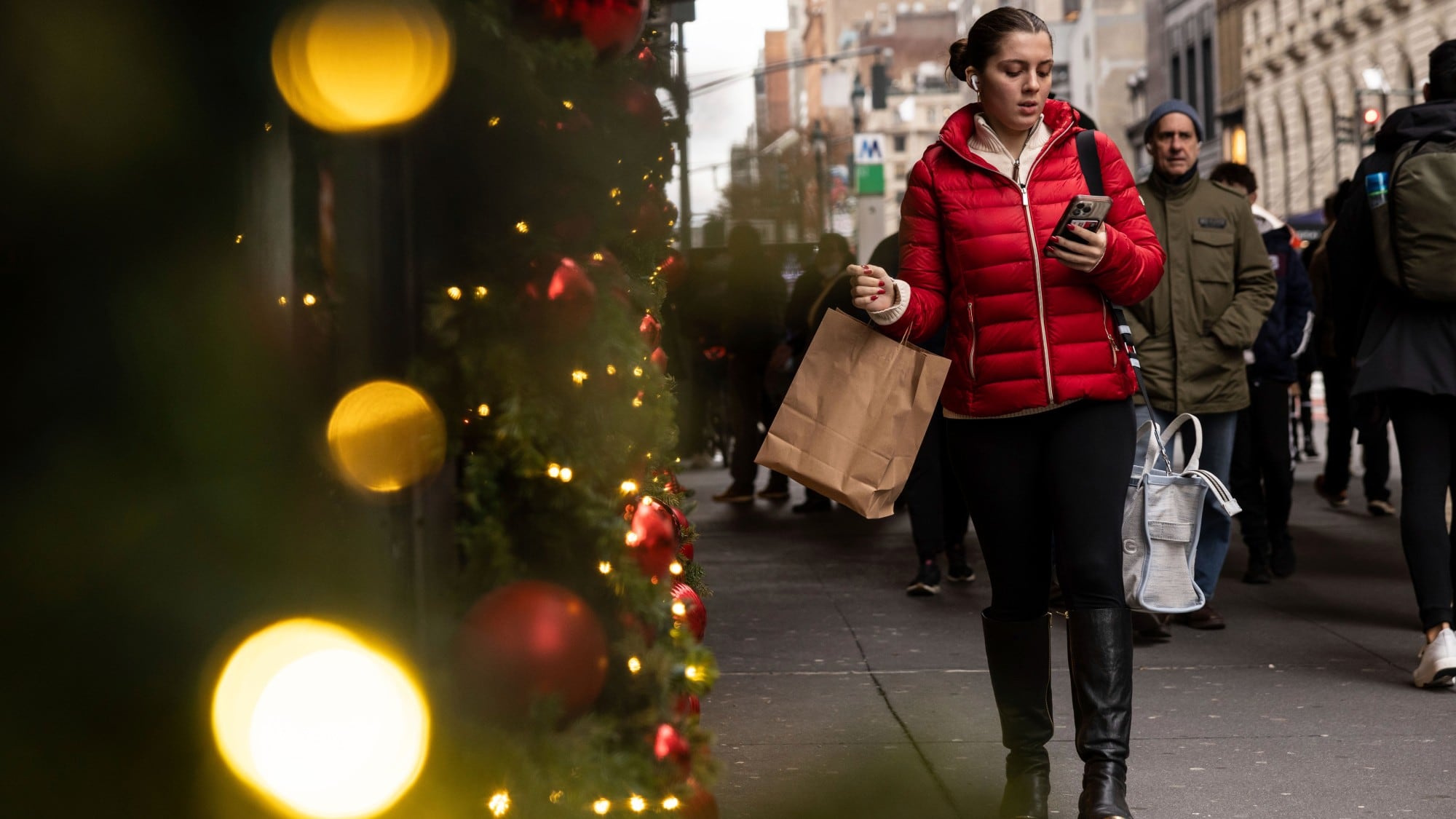By Anne D’Innocenzio and Haleluya Hadero
Holiday sales rose this year and spending remained resilient during the shopping season even with Americans wrestling with higher prices in some areas and other financial worries, according to the latest measure.
Holiday sales from the beginning of November through Christmas Eve climbed 3.1%, a slower pace than the 7.6% increase from a year earlier, according to Mastercard SpendingPulse, which tracks all kinds of payments including cash and debit cards.
This year's sales are more in line with what is typical during the holiday season, however, after a surge in spending last year during the same period.
“This holiday season, the consumer showed up, spending in a deliberate manner” said Michelle Meyer, Chief Economist, Mastercard Economics Institute. “The economic backdrop remains favorable with healthy job creation and easing inflation pressures, empowering consumers to seek the goods and experiences they value most.”
The number of people seeking unemployment benefits has remained very low by historical standards and employers are still having a hard time finding enough workers.
Still, sales growth was a bit lower than the 3.7% increase Mastercard SpendingPulse had projected in September. The data released Tuesday excludes the automotive industry and is not adjusted for inflation.
Clothing sales rose 2.4%, though jewelry sales fell 2% and electronics dipped roughly 0.4%. Online sales jumped 6.3 % from a year ago and in-person spending rose a modest 2.2%.
Consumer spending accounts for nearly 70% of U.S. economic activity and economists carefully monitor how Americans spend, particularly during the holidays, to gauge how they're feeling financially.
There had been rising concern leading up to the holiday about the willingness of Americans to spend because of elevated prices for daily necessities at a time when savings have fallen and credit card delinquencies have ticked higher. In response, retailers pushed discounts on holiday merchandise earlier in October compared with a year ago. They also took a cautious approach on how much inventory to order after getting stung with overstuffed warehouses last year.
The latest report on the Federal Reserve’s favored inflation gauge, issued Friday, shows prices are easing. But costs remain still higher at restaurants, car shops, or for things like rent. Americans, however, unexpectedly picked up their spending from October to November as the holiday season kicked off, underscoring their spending power in the face of higher costs.
A broader picture of how Americans spent their money arrives next month when the National Retail Federation, the nation’s largest retail trade group, releases its combined two-month statistics based on November-December sales figures from the Commerce Department.
The trade group expects holiday expects U.S. holiday sales will rise 3% to 4%. That’s lower than last year’s 5.4% growth but again, more consistent with typical holiday spending, which rose 3.6% between 2010 and 2019 before the pandemic skewered numbers.
Industry analysts will dissect the fourth-quarter financial performance from major retailers when they release that data in February.
The big concern: is whether shoppers will pull back sharply after they get their bills in January. Nikki Baird, vice president of Aptos, a retail technology firm, noted customers, already weighed down by still high inflation and high interest rates, might pull back more because of the resumption of student loan payments that kicked in Oct. 1.
“I am worried about January,” she said. “I can see a bit of a last hurrah.”













